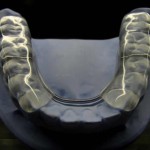
Gemma Lewis and Glyn Lewis summarise a robust systematic review and meta-analysis investigating the incidence of symptoms when discontinuing or withdrawing from antidepressants. The data suggest that 8-14% of patients will experience antidepressant discontinuation symptoms, and for around 2% these symptoms will be severe.
[read the full story...]







